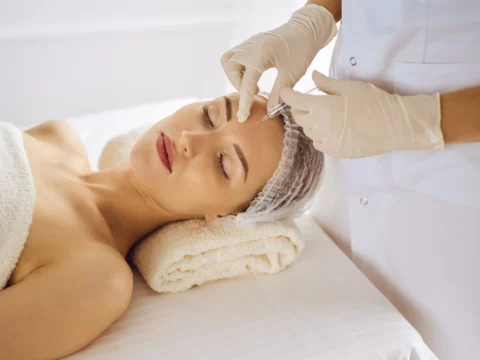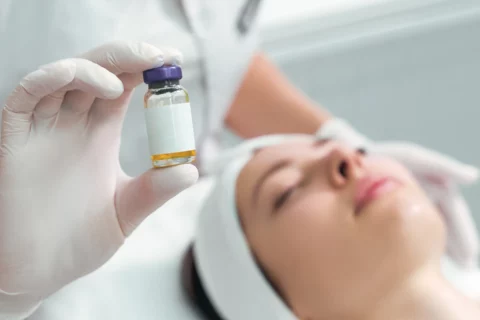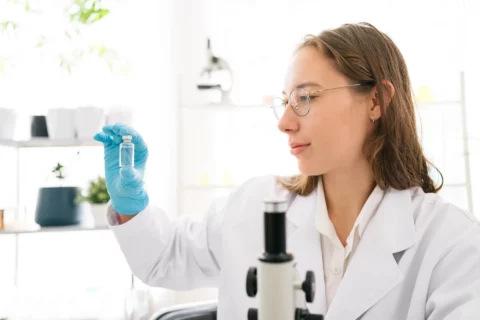From mice to men: The trail of evidence on exosomes to treat thinning hair
Early signs of thinning hair can be distressing, leaving you desperately seeking solutions. Recent research on exosomes – tiny vesicles secreted by stem cells – offers renewed hope. But can injecting these cellular messengers actually restore your hair?
If so, how long until you see results? What potential side effects or costs should you consider? Read on as we draw from our experience at Face Med Store to provide in-depth insights on the role of exosomes in targeting hair loss, and what the evidence says so far.
What is the Role of Exosomes in Hair Loss?

Exosomes derived from stem cells like MSCs may reactivate dormant follicles in hair loss through regenerative signaling, improving blood supply, protecting follicle stem cells, and reducing inflammation that impairs cycling, based on our research.
Hair renewal is a complex process that can go awry in various ways. As hair loss sufferers, research on regenerative treatments like exosomes offers hope. But what role may exosomes play in treating hair loss, according to our experience?
Exosomes are tiny vesicles secreted by cells, brimming with proteins and RNAs. When derived from mesenchymal stem cells and injected into your scalp, It is believed that exosomes may reactivate your dormant follicles through several mechanisms.
How Exosomes May Promote Hair Growth
When injected into the scalp, exosomes are thought to transmit signals directly into hair follicles that counter impairment and aging through several key mechanisms:
- Promoting angiogenesis – Exosomes contain growth factors that can stimulate new blood vessel development around follicles. Improved blood supply brings more nutrients to nourish follicles.
- Reducing inflammation – Excess inflammation can impair the hair growth cycle. The anti-inflammatory effects of exosomes may help mitigate this.
- Encouraging cell proliferation – Bioactive exosome contents like proteins and RNAs may activate pathways involved in follicle cell regeneration. This helps revive dormant follicles.
- Delivering regenerative signals – Exosomes can directly fuse with follicle cells, releasing proteins and RNAs that counter miniaturization and aging.
Tresses in distress? Exosome injections may help. Learn about Face Med Store’s exosome therapy now!
How Long Does it Take to See Results from Exosome Hair Therapy?
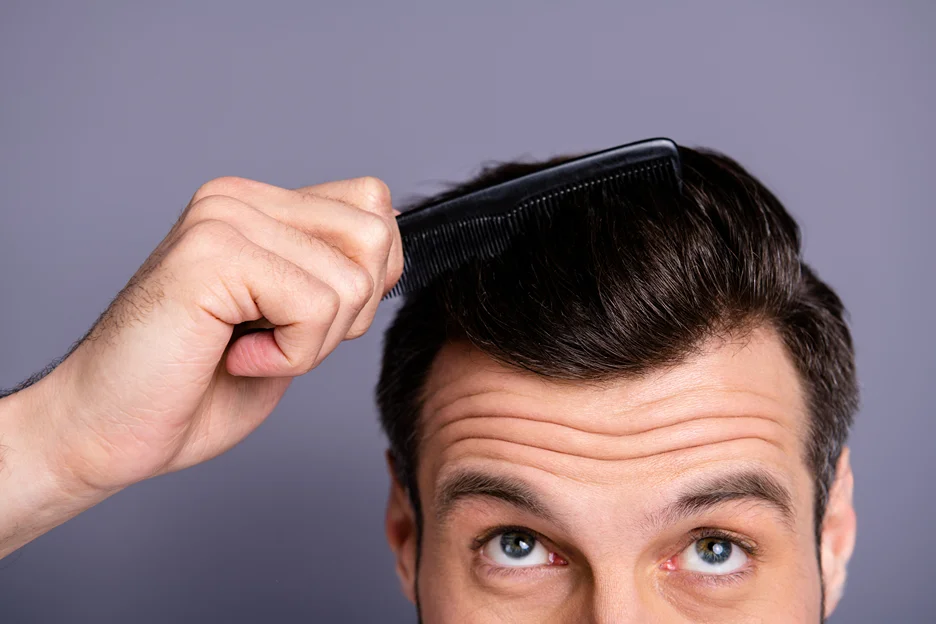
Visible improvements from exosome hair therapy often emerge around 6 months after starting treatment, with gradual continued gains over a year. Early sprouting may occur at 2-3 months, but substantial regrowth takes time as regenerative signaling builds.
Patience is key when considering exosome treatment for hair loss. Have you wondered how long the effects take to manifest? Based on our observations, the timeline unfolds gradually:
- Early new sprouts may pop up 2-3 months in. However, Dr. Soni emphasizes substantial improvements often emerge closer to 6 months post-treatment.
- The momentum can continue building over a year as the regenerative exosomal signals accumulate. Maintenance sessions every 1-2 months are typically advised during this period.
After completing the initial treatment regimen, Dr. Soni indicates benefits may last around 6-8 months before requiring upkeep. The implanted exosomes remain biologically active during this time, continually nurturing follicles. Don’t expect an overnight transformation.
What is the Process of Exosome Hair Injection?
The exosome hair injection process involves numbing and cleaning the scalp, then using thin needles to inject exosomes extracted from stem cells into the scalp area in multiple small injections targeting thinning spots. It takes around 30 minutes with minimal downtime.
Before the Appointment
Dr. Soni recommends drinking extra fluids the day prior and having a light meal the morning of your injection. This prevents dehydration and dizziness.
He advises avoiding blood thinners like aspirin and NSAIDs for 3 days before through 3 weeks after. This reduces bleeding risk from the injections.
The Injection Visit
The provider will first clean and numb the scalp area using an anesthetic like lidocaine. This prevents any discomfort.
Next, the previously extracted exosomes are meticulously injected into your scalp using thin needles. Multiple small injections are made to comprehensively cover the thinning areas.
Dr. Soni indicates the full procedure takes around 30 minutes. You can then return to normal activities with minimal downtime.
After the Injection
Some temporary soreness, swelling or irritation may occur. But Dr. Soni assures these symptoms typically resolve within days.
Further injection sessions every 3-6 months are often recommended to continually boost hair thickness and growth through sustained exosome signaling.
What is the Difference Between Exosomes and PRP for Hair Loss?
Exosomes derive regenerative contents from stem cells while PRP uses the patient’s concentrated blood growth factors. More evidence supports PRP currently, but exosomes may require fewer treatments. Neither have extensive clinical data yet.
Use this table to learn what makes each treatment unique:
| Factor | Exosomes | PRP |
| Description | Tiny vesicles containing proteins and genetic material derived from stem cells | Concentrated growth factors from patient’s own blood |
| Mechanism | Promote angiogenesis, reduce inflammation, activate follicle stem cells | Enhance tissue regeneration and wound healing |
| Evidence Level | Preclinical studies show promise, but limited clinical evidence with small trials | More clinical evidence but protocols vary greatly, long-term efficacy unclear |
| Treatment Frequency | May require fewer sessions, results in months | Requires ongoing maintenance every 3-6 months |
| Patient Suitability | No blood draw needed | Blood draw at each session may not suit some patients |
| Side Effects | Safety requires further study | Generally mild like pain and swelling |
| Cost | Typically more expensive | Typically more affordable |
What are the Potential Side Effects of Exosomes Hair Loss Treatment?
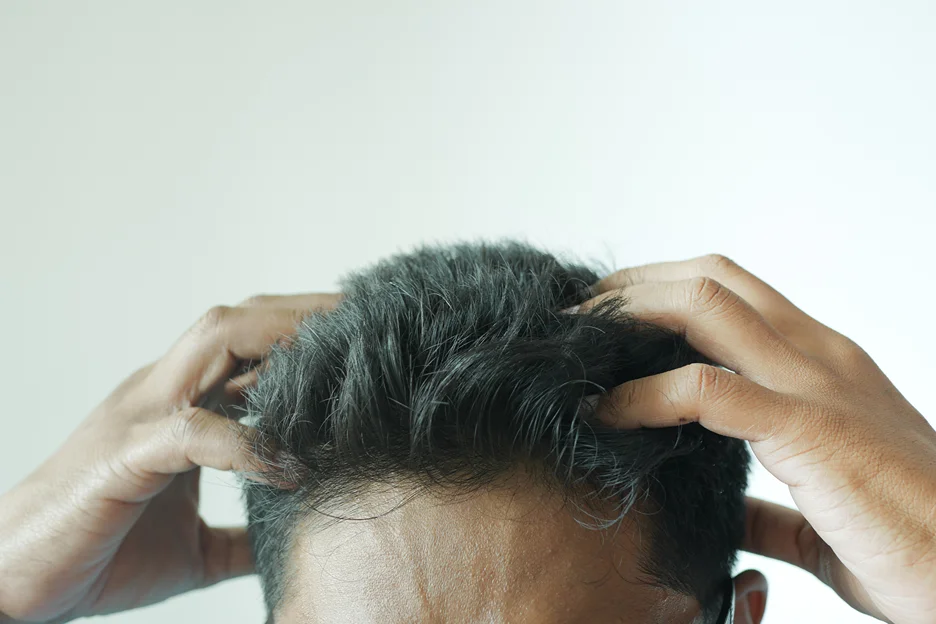
Common potential side effects of exosome therapy for hair loss include mild injection site reactions, scalp sensitivity, lack of efficacy in some patients, and theoretical long-term risks like tumors since clinical safety data remains limited currently.
While promising, exosome therapy does carry risks requiring consideration. Based on available evidence, Dr. Soni indicates potential side effects may include:
- Mild injection site reactions like temporary pain, bruising or swelling. Dr. Soni assures these generally subside within 1-2 days.
- Some patients report heightened scalp sensitivity or itching for several days post-treatment.
- Lack of efficacy in some individuals is possible given the limited clinical testing of exosomes thus far. Response likely varies.
- Contamination could occur if exosome harvesting or storage is improper, leading to infections. Reputable sourcing is critical.
- Theoretical tumor risk exists due to the stem cell origin, though no cases linked to exosome therapy have emerged yet.
- Long-term safety remains unclear presently. Additional widespread clinical data over the years may reveal rare side effects.
What is the Cost of Exosomes Hair Loss Treatment?
Based on current market rates, you can expect to pay:
- $3,000 to $10,000 per treatment session on average. However, prices may range from $2,000 up to $15,000.
- Less overall than traditional hair transplant surgery. Exosome injections are less invasive.
- Varying costs depending on factors like provider, treatment extent, added growth factors, and your personal protocol. Discuss these details thoroughly before committing.
- Ongoing maintenance session fees will accrue over time. Frequency is customized but expect repeat visits.
While not generally covered by insurance given the limited clinical testing, Dr. Soni recommends comparing qualified providers thoroughly and inquiring about potential bundled pricing.
What is the Research on Exosomes and Hair Growth?
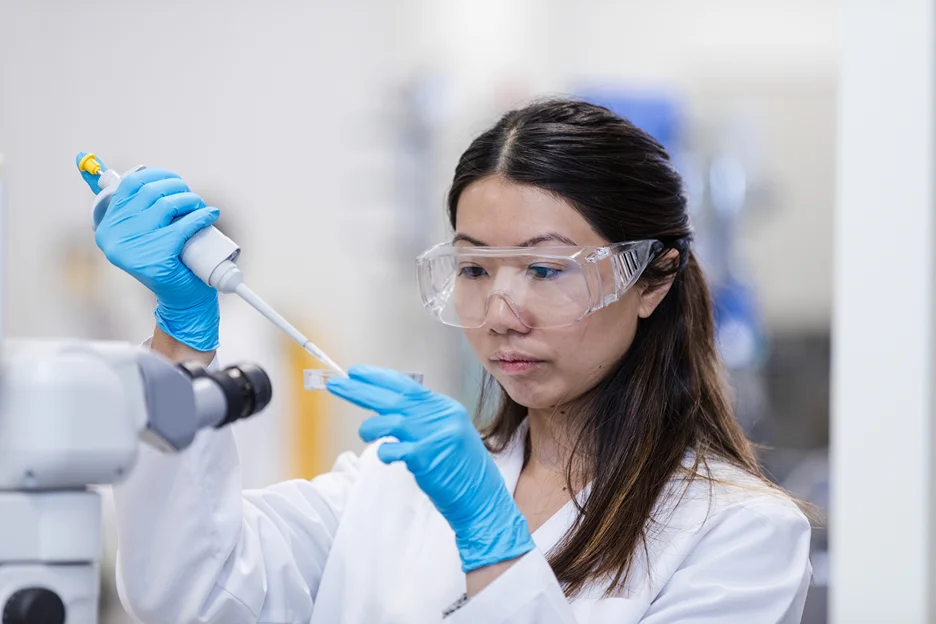
Preclinical studies in mice have demonstrated that exosomes derived from stem cells or other cell types can stimulate hair follicle regeneration, increase hair thickness and density, and induce transition of follicles from the resting to growth phase. This indicates potential for exosomes to promote hair growth.
A small clinical study in 39 patients with androgenetic alopecia found that topical treatment with adipose-derived stem cell exosomes led to self-reported hair growth in 64.5% of patients after 3 months. Trichoscopy confirmed increased hair density and thickness in responders assessed.

